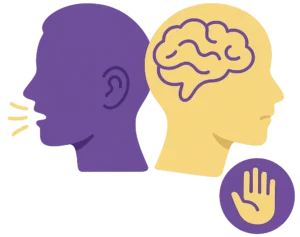
Dysarthria is caused by weakness or poor coordination of the speech muscles due to neurological injury or conditions. It may occur alongside other disorders like cerebral palsy or muscular dystrophy.
Book a comprehensive speech and literacy evaluation today. Call us at (845) 360-9323 or click below to request an appointment.